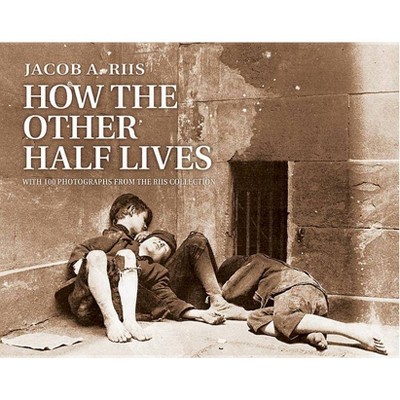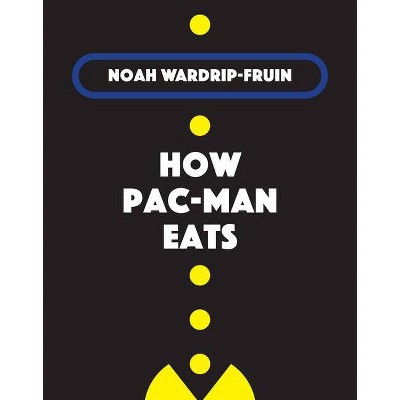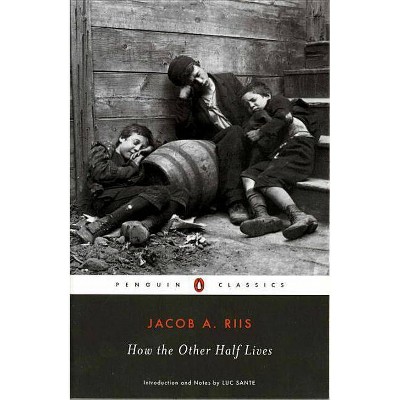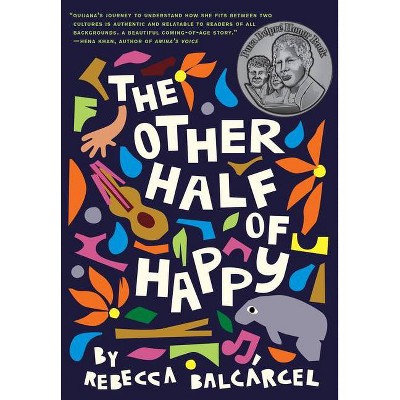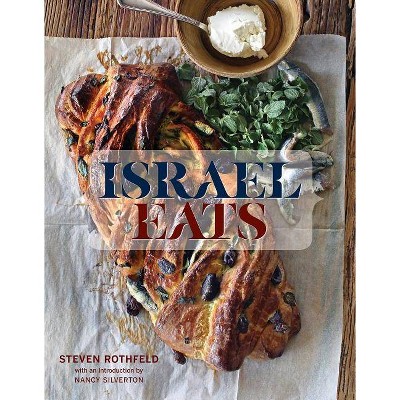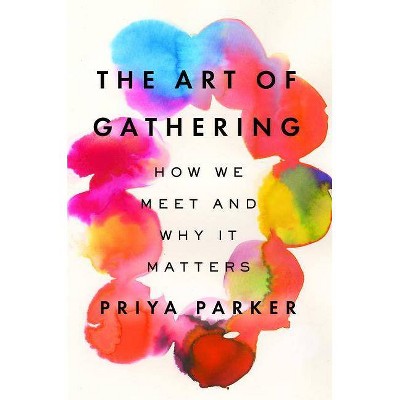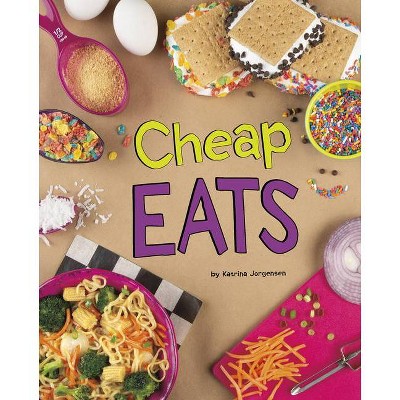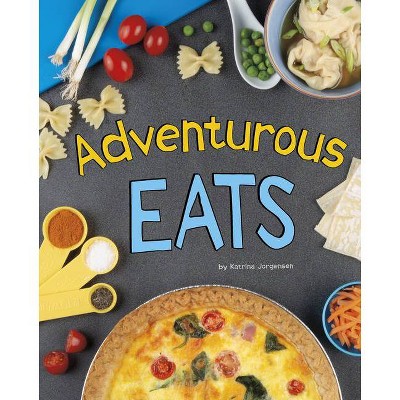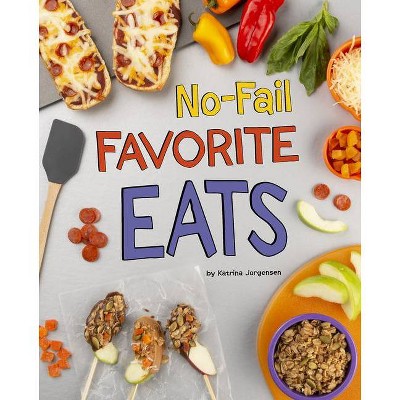How the Other Half Eats - by Priya Fielding-Singh (Hardcover)
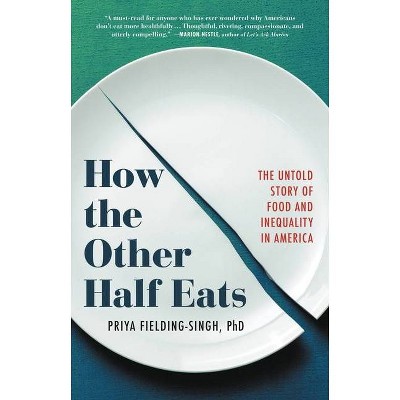
Similar Products
Products of same category from the store
AllProduct info
<p/><br></br><p><b> About the Book </b></p></br></br>"Inequality in America manifests in many ways, but perhaps nowhere more than in how we eat. From her years of field research, sociologist and ethnographer Priya Fielding-Singh brings us into the kitchens of dozens of families from varied educational, economic, and ethnoracial backgrounds to explore how--and why--we eat the way we do"--<p/><br></br><p><b> Book Synopsis </b></p></br></br><p><b>A "deeply empathetic" (<i>Publishers Weekly, starred review)</i> "must-read" (<i>Marion Nestle</i>) that "weaves lyrical storytelling and fascinating research into a compelling narrative" (</b><b><i>San Francisco Chronicle</i></b><b><b>) </b>to look at dietary differences along class lines and nutritional disparities in America, illuminating exactly how inequality starts on the dinner plate.</b></p><p> <br>Inequality in America manifests in many ways, but perhaps nowhere more than in how we eat. From her years of field research, sociologist and ethnographer Priya Fielding-Singh brings us into the kitchens of dozens of families from varied educational, economic, and ethnoracial backgrounds to explore how--and why--we eat the way we do. We get to know four families intimately: the Bakers, a Black family living below the federal poverty line; the Williamses, a working-class white family just above it; the Ortegas, a middle-class Latinx family; and the Cains, an affluent white family.</p><p> <br>Whether it's worrying about how far pantry provisions can stretch or whether there's enough time to get dinner on the table before soccer practice, all families have unique experiences that reveal their particular dietary constraints and challenges. By diving into the nuances of these families' lives, Fielding-Singh lays bare the limits of efforts narrowly focused on improving families' food access. Instead, she reveals how being rich or poor in America impacts something even more fundamental than the food families can afford: these experiences impact the very meaning of food itself. <p/>Packed with lyrical storytelling and groundbreaking research, as well as Fielding-Singh's personal experiences with food as a biracial, South Asian American woman, <i>How the Other Half Eats</i> illuminates exactly how inequality starts on the dinner plate. Once you've taken a seat at tables across America, you'll never think about class, food, and public health the same way again.</p><p/><br></br><p><b> Review Quotes </b></p></br></br><br>"An eye-opening and intimate study of what families eat and why"--<i><b>Kirkus Review</b></i><br><br>"Deeply empathetic... [a] devastating portrait of 'the scarcity, uncertainty, and anxiety that permeates so much of the American dietary experience.'"--<i><b>Publishers Weekly (starred review)</b></i><br><br><i>"How the Other Half Eats</i> is a must-read for anyone who has ever wondered why Americans don't eat more healthfully. Fielding-Singh achieved something remarkable in gaining the trust of families who then let her observe their daily food choices. Her book is a thoughtful, riveting, compassionate, and utterly compelling account of why eating healthfully is so difficult, especially for the poor. What's more, she offers a superb example of why on-the-ground field research is invaluable for gaining a deep and nuanced understanding of the ways that our industry-driven and highly inequitable food environment affects real people on a daily basis."--<i><b>Marion Nestle, author of Let's Ask Marion</b></i><br><br>"<i>How the Other Half Eats</i> overturns the conventional wisdom about childhood obesity, food deserts, and nutritional inequality, replacing it with a profound and compelling ground truth. Fielding-Singh shows us how inequalities in families' diets do not stem from the negligence of some parents and the devotion of others. Rather, the food that graces the plates of all children - rich and poor, Black and white - reflects mothers' deep-seated love and commitment to their kids' well-being. Honest, incisive, and illuminating, <i>How the Other Half Eats</i> is the book we need about food and inequality in America."--<i><b>Kathryn Edin, author of $2 a Day</b></i><br><br>"In this intimate and revealing chronicle, Fielding-Singh has done us a great service by revealing myth-busting truths about poverty, wealth, hunger, and abundance. More than that, she does it in a way that shows how knowledge might be shared compassionately, in the best tradition of engaged scholar-activism. This isn't just undercover journalism, but an epistemology of the American dining table. After reading it, you'll never be able to claim you didn't know, or know how to know, how the other half eats."--<i><b>Raj Patel, author of Stuffed and Starved</b></i><br><br>"Bold, eye-opening, and deeply moving, <i>How the Other Half Eats</i> is a must-read for anyone concerned about the well-being of American families. Fielding-Singh powerfully shows how sweeping, systemic inequities find their way onto our dinner plates and impact our health and wellness. This compassionate and captivating book resonated with me as a physician caring for my patients and as a mother striving to do right by my children."--<i><b>Dr. Leana Wen, author of Lifelines</b></i><br><br>"If you think that poor health, obesity and<b> </b>bad food choices are a matter of personal responsibility, <i>How the Other Half Eats </i>will make you think again. Through the stories of four families struggling to feed themselves, Fielding-Singh vividly brings to light the human aspect of our disordered food system and the structural challenges of poverty, lack of education about and access to real food in this examination of the fundamental flaws in our food system. We live in a country where we throw out one third of our food, yet one in four children are food insecure. The complex web of social, political and economic conditions that give rise to massive nutrition and food insecurity come to life in this book. It should be mandatory reading for parents, teachers, healthcare workers, and policymakers."--<i><b>Mark Hyman, MD, author of The Pegan Diet</b></i><br><p/><br></br><p><b> About the Author </b></p></br></br><p><b>Priya Fielding-Singh</b> is an Assistant Professor in the Department of Family and Consumer Studies at the University of Utah, where she researches, teaches, and writes about families, health, and inequality in America. She earned her Ph.D. in Sociology from Stanford University and completed her postdoctoral training as a National Institutes of Health (NIH) Fellow in Cardiovascular Disease Prevention at the Stanford School of Medicine. She lives in Salt Lake City with her husband and daughter. http: //priyafs.com/ </p>
Price History
Price Archive shows prices from various stores, lets you see history and find the cheapest. There is no actual sale on the website. For all support, inquiry and suggestion messagescommunication@pricearchive.us
